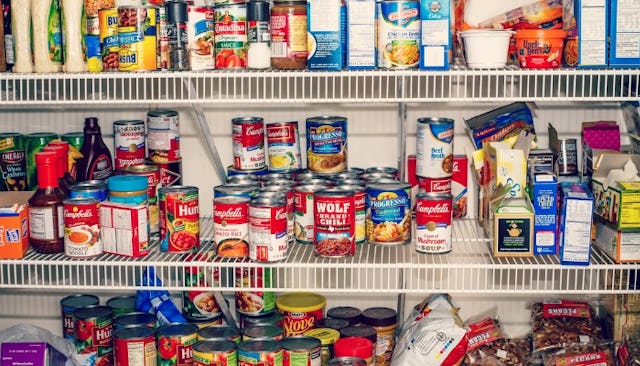This Thanksgiving, I Am Teaching My Children About Poverty

Every Thanksgiving, our entire family gathers around in a giant circle and says out loud what we are thankful for. It’s a tradition I love, and it’s hands-down the best part of the evening (besides the food, of course!).
Recently, to prep him for the occasion, I asked my 3-year-old son what he was thankful for. His answer rolled quickly off his tongue: “My Batmobile, my Superman cape, my fire truck, my train tracks—and the new Aquaman that Grandma just ordered.” His long list of toys made me smile. He’s a little kid: These are exactly the kinds of things he should be thankful for.
But I have been thinking lately that I want my children to think beyond their little world of toys and play and school and home. Without making them feel worried or guilt-ridden, I want my children to know that not every child has the inordinate number of toys that they have. Not every child has a Thanksgiving feast with enough food to feed 10 families.
Our family has never been impoverished, but just a few years ago, things were pretty dire for us financially. My husband was unemployed, I was pregnant (with the 3-year-old), and my husband, son and I were living in a one-bedroom apartment. It took my husband almost a year to find a full-time job. In that time, he collected unemployment, and we were on food stamps and Medicaid.
I will never forget the morning before our second son was born. My husband had received a letter from the unemployment office threatening to stop sending him checks because of some missing document. It was a weekend, and he couldn’t call the office to square everything away. Our home was filled with uncertainty and fear that day. Would they stop sending us checks? Would we have to ask for a loan from our parents?
When my water broke and the contractions started, the matter was still unresolved, and I felt all the worries of that year in my body, my heart. The whole thing—the letter, the bills piling up, our savings account running down—clouded one of the most important days of my life, the day I brought our second son into the world.
No, we were never living in poverty. Yes, my husband did get a job a few months later. But those months—of living on very little income, of tightening our budget tremendously, and living in fear that we would never make it through to the other side—taught me that material possessions are something one should never take for granted.
My older son remembers those meager days. He remembers us talking, arguing and worrying about money. He remember the glorious day that his dad got the new job. But I’m not sure he understands that some families don’t have all the things we continued to have, even in our time of struggle. I don’t think he knows that 1 in 3 children in America live in poverty.
Think about those numbers for a second: 1 in 3 children. That’s more children than you can picture or imagine. That’s millions and millions of boys and girls.
These are uncomfortable facts for anyone to hear, my children included. But that is exactly why I need to talk to them about it all.
This Thanksgiving, we will be talking about it in ways that they can understand. As we bring the cans of food to my older son’s elementary school to donate, we will talk about how valuable even small cans of food are to families who sometimes only eat one meal a day. As we gather up dollars and pennies to donate to UNICEF and Feeding America, we will talk about what the most essential things are for poor families to buy, and the how all the toys, books and other material possession are just special extras, and not strictly necessary.
I know that talking about poverty and donating small amounts of food and money won’t solve the huge problem that we have in America. I know that there are bigger structural changes that need to happen for poverty to be eradicated. But I am a mother, and when I think about what it means to struggle, what it means to be poor, I can’t help but want to do something—anything. When I think about a child—any child—going to sleep hungry, cold or scared, I feel broken and helpless.
So I do what I can, and I teach my children to do the same. Each small thing makes a difference. If even one more child goes to sleep with a full belly, you have done good. And if all of us do a little good, and teach our children to do the same, we can change the world.
This article was originally published on